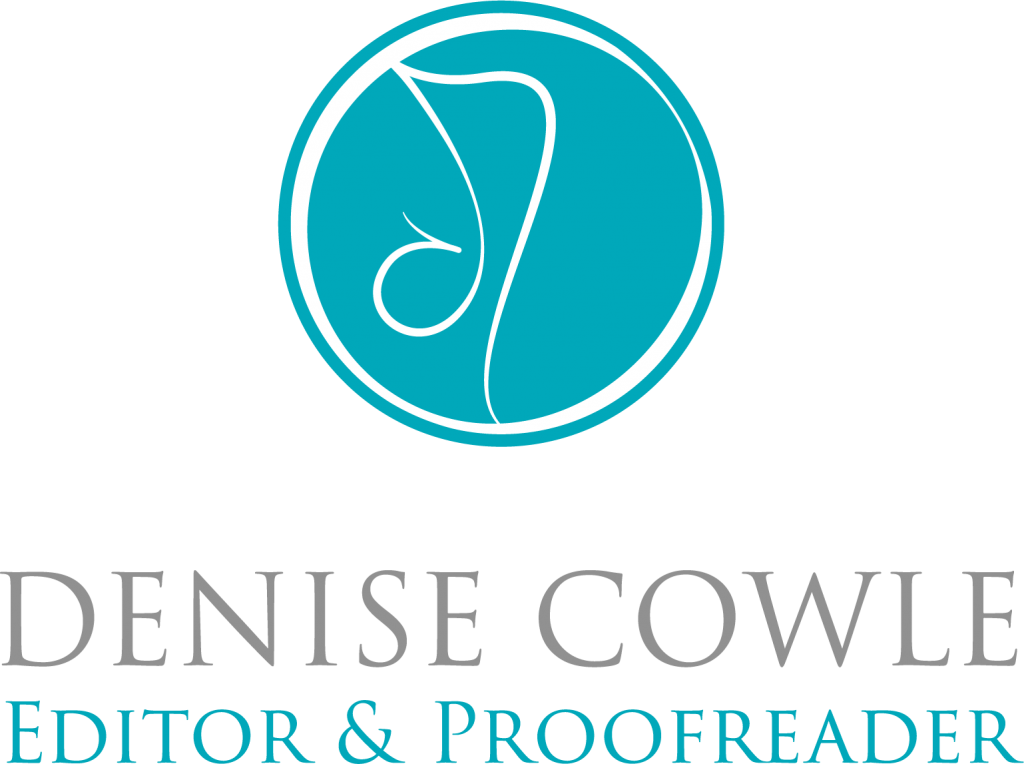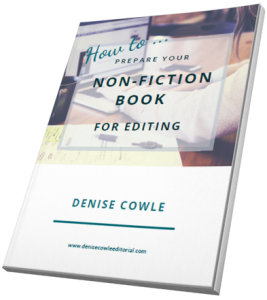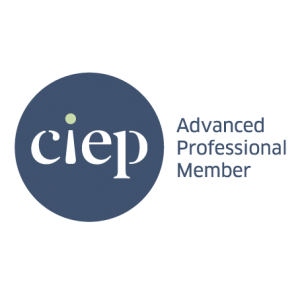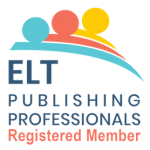LEARNING CENTRE
Search for a topic below
MY LATEST ARTICLES
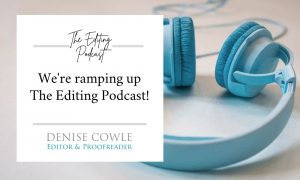
How we’re ramping up The Editing Podcast
The Editing Podcast has had a revamp for 2022! Find out more about the new broadcast schedule for The Editing Podcast and how you can
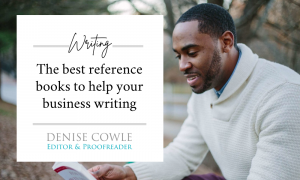
The best reference books to help your business writing
You don’t need me to tell you that your business writing should be as polished as possible if you want to avoid your potential customers

How The Editing Toolkit can help your writing
We all feel differently about business writing – for some of us it’s a pleasure to sit down and let the words flow, but for others
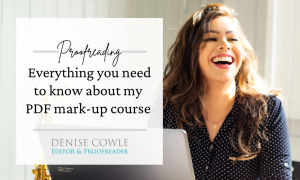
Everything you need to know about my PDF mark-up course
You may have noticed that I recently launched a PDF mark-up course. How to Mark Up PDF Page Proofs will help anyone who works with
LET'S CLEAR UP A FEW THINGS
Editing or proofreading takes time. I’ll read your text much more slowly than you would, scrutinising the content for errors of spelling, punctuation and grammar.
There are typographic and layout conventions to consider, and consistency of style to be aware of. If I’m copyediting I’ll also need time to analyse the flow, rhythm and sense of your sentence structure.
That’s why it’s important for me to see your text before I can give you an accurate quote for the price and when I’m available to do the work.
While AI tools such as Grammarly can be very useful for spotting certain types of error, they’re not reliable for editing all aspects of your writing.
There is flexibility and art to editing, and the nuances of language are lost on a computer program which follows a rigid set of ‘rules’. Many of the rules we are taught in school are style choices and open to interpretation.
A human editor will understand the rhythm and voice of your writing, which may require some grammatical rules to be bent out of shape a little, and that’s OK.
Sometimes computers are flat out wrong in trying to impose grammar rules. Let an editor breathe life into your writing, not strangle it into submission.
Being good at English is not the same as being a good editor or proofreader. There’s much more to it than spotting typos.
Without professional editorial training, you don’t know what you don’t know (ask any professional editor and they’ll laugh wryly at how overconfident they were when they started out).
Training fills in the gaps in our knowledge that we didn’t know were there and teaches us to recognise when we need to double check a rule or convention.
I’m quite good at wiring a plug, but you wouldn’t want me to rewire your house, I promise you!
That’s true. And there are other editors who are more expensive than me.
Like most things in life editorial rates are on a spectrum, and many factors influence what an editor charges.
These include their skills and experience, the type of work they do, the genre or specialism, and how much work is required on any particular project.
If my quote doesn’t fit your budget, rest assured there are other editors and proofreaders who might be a better fit for you.
As my great auntie Margaret would say, there’s a saucer for every teacup!
Are you sure? I mean, are you really, really sure about that?
We’re all forgiving of the odd typo here and there – it happens to the best of us – but what happens when it’s a pattern? When almost everything that’s published has errors?
That makes me think that the writer, business owner or company is too busy to pay attention to their writing or doesn’t think that level of detail is important. Which makes me wonder what else they might feel that way about.
Your current clients, who know you and love what you do, might be happy to overlook your spelling and grammar errors – they may even find it quirky or amusing – which is fine. They’re already your clients.
But what about your potential clients? Whose first experience of you is website copy or a lead magnet with careless errors and clunky grammar and phrasing.
That could be enough to put them off, before they get a chance to know about you and your fabulous product or service.
First impressions matter – don’t give people a reason to look elsewhere.
There has always been a wonderful variety of Englishes, and while many people are much less prescriptive about language, there are still rules of grammar and usage.
The important thing from an editor’s viewpoint is that the register and tone are correct for the intended audience, that the conventions of spelling, punctuation and grammar are observed, and that the message is clear and the style choices consistent.
So what would be considered an acceptable use of English on a young, risk-taking company’s webpages wouldn’t necessarily fly in an academic journal article.
If I’m editing your memoir, I’m going to make sure it sounds like you’ve written it – I’m not going to edit it to some perceived ‘gold standard’ of written English, because it probably wouldn’t sound anything like you.
And then you wouldn’t be happy with what I’d done.
They might, if they see some really obvious errors, but that’s not what you’re paying them to do.
Their job is to focus on how your text looks, not what it says.
No, I can’t do that.
No editor should guarantee perfection – we are human and sometimes errors will slip past us. I use specialist software and tools to help me with my work, but much of it still comes down to good, human attention to detail.
What I can do is reassure you that I will make your document as free from errors as I can, given the constraints of time and budget.
The Editor's Note
Monthly updates from my desk to yours. Exclusive, actionable advice on writing and editing non-fiction.

